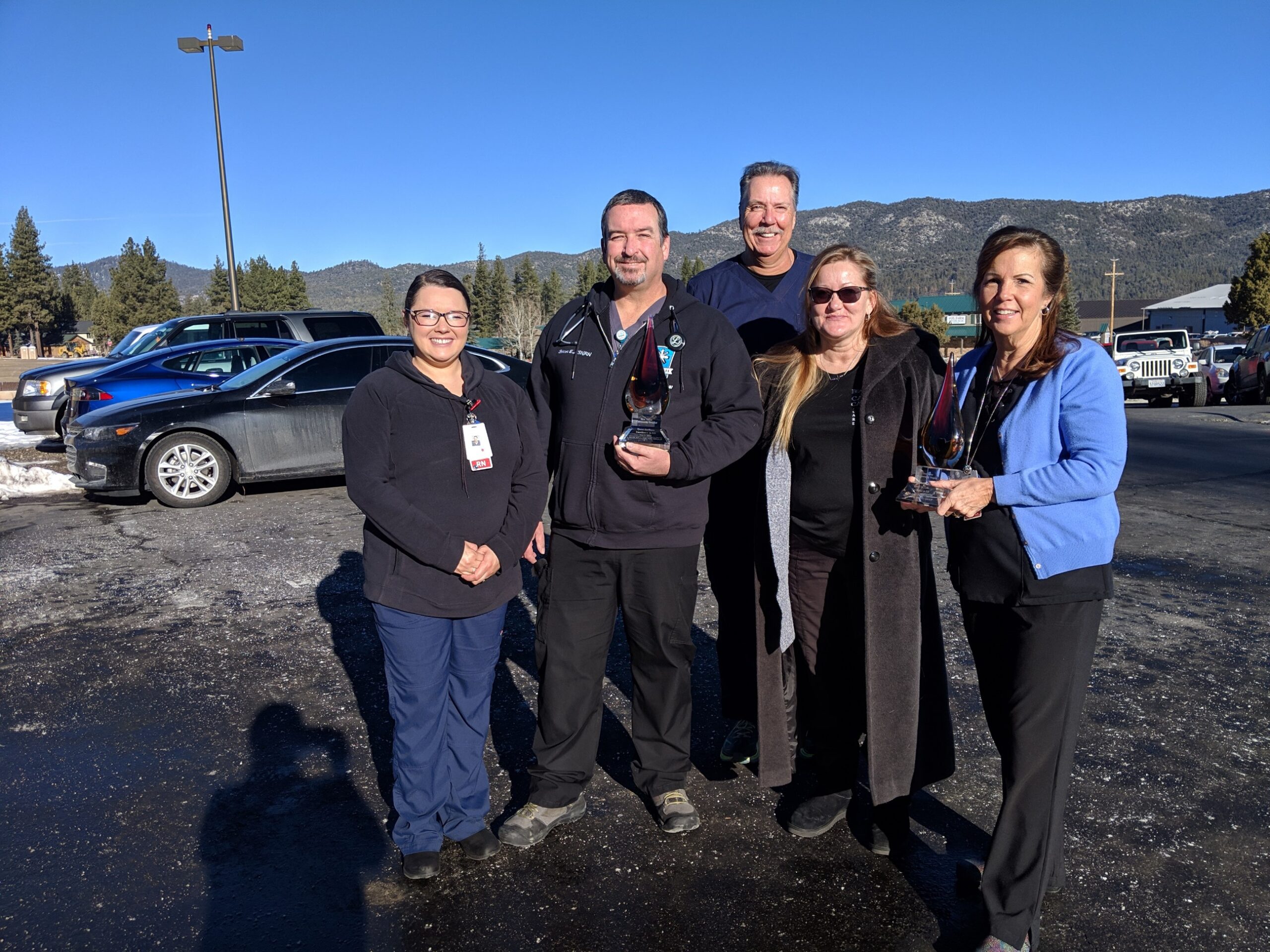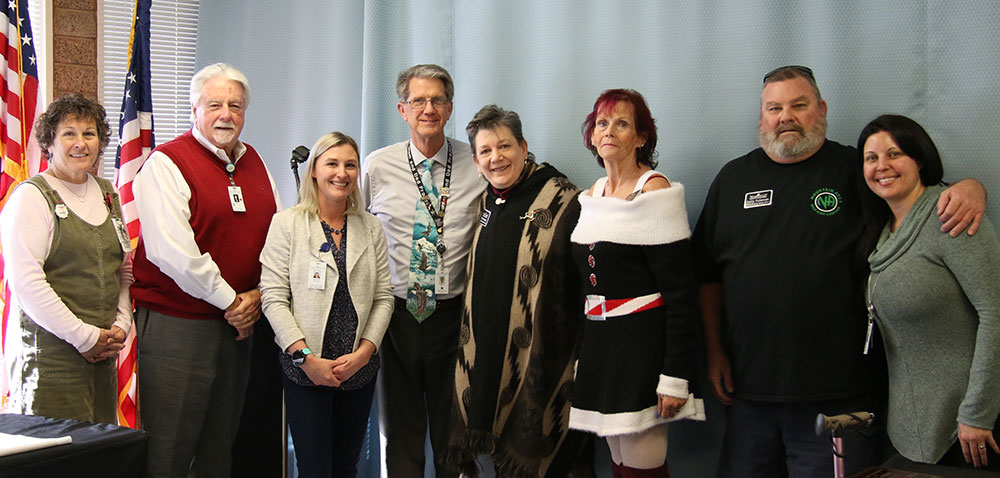BVCHD is participating in the BETA HEART program for the second year. BETA HEART is an extensive program that includes five domains that pertain to responding to harm events and encouraging transparency with the patient and family. BETA HEART is based on a philosophy of Healing, Empathy, Accountability, Resolution and Trust. There are five domains to the program that include: Culture of Safety, Rapid Event Detection, Investigation and Determination, Communication and Transparency, Care for the Caregiver and Early Resolution. This year many staff members participated in focus groups as part of a Gap Analysis to determine where we are at in this process and several members of the staff were trained in empathetic communication and transparency. We will be continuing in our journey towards developing programs in each of the domains this year.
BETA Healthcare Group (BETA) is focused on improving reliability and reducing risk exposure in emergency departments. BETA provides our client hospitals and medical groups the opportunity for significant reduction in ED premiums each year of participation in the Quest for Zero: ED patient safety initiative. As participants demonstrate compliance with all elements of Tier 1 (education), they may earn additional savings by advancing to the second tier (implementation of best practices in patient safety).
BVCHD Emergency Department has been a recipient of the BETA Quest for Zero award for multiple consecutive years. In order to be honored for this achievement 100% of all ED Providers and Nurses must complete specialized training and testing annually in the area of recognizing and responding to high risk chest pain patients.

In 2018 BVCHD implemented a “Just Culture” program. The focus of Just Culture is to have a work environment where staff members feel comfortable bringing forward problems that they are having throughout their workday, near misses, or system issues that have caused “work-arounds” so that we can fix those issues before we end up with a harm event. We want to be able to do good investigations surrounding events and make sure we are looking at all of the system problems that may have led to the event rather than blaming a person, or expecting individuals to never make a mistake.
BVCHD participates in the Hospital Consumer Assessment of Healthcare Providers and Systems (HCAHPS). HCAHPS is a core set of quality measures that complement the data hospitals currently collect to support improvements in customer service and quality. HCAHPS is the national standard for collecting publicly reported information regarding patient experience and allows for comparison to be made across hospitals locally, regionally and nationally.
BVCHD has an active Patient and Family Advisory Council since January 2017. The PFAC meets quarterly to advise on issues such as patient and family centered care policies, education and admission information that is given to patients, and barriers to accessing and understanding healthcare at our facility. The council is made up of community members who volunteer their time and want to participate in improving care at our facility. Each of the council members have either been a patient or are a family member of a patient at BVCHD. Their ideas and contributions have made an impact and given us valuable insights into the patient’s perspective over the last two years.
Patient and Family Advisors are selected through an application and interview process and serve as volunteers for a term of 1 year. Advisors may re-apply for one consecutive term for a total of 2 years. BVCHD is continually recruiting for potential Patient and Family Advisors, requirements to serve on the council include being a recent patient or family member of a patient who has received care within the healthcare district and willing to collaborate with District leadership for positive and constructive change.
Insert information regarding committee process (2 year term/who to contact if interested)

The Medicare Beneficiary Quality Improvement Project (MBQIP)is a quality improvement activity under the Medicare Rural Hospital Flexibility (Flex) grant program of the Health Resources and Services Administration’s Federal Office of Rural Health Policy. The goal of MBQIP is to improve the quality of care provided in critical access hospitals (CAHs), by increasing quality data reporting by CAHs and then driving quality improvement activities based on the data. This project provides an opportunity for individual hospitals to look at their own data, measure their outcomes against other CAHs and partner with other hospitals in the state around quality improvement initiatives to improve outcomes and provide the highest quality care to each and every one of their patients.
Advancing Transparency in Hospital Quality Data Project.
The California Hospital Association (CHA), in partnership with the Hospital Quality Institute (HQI), believe that hospitals need to be more transparent to the public and that transparency is critical in driving overall improvement in patient safety and quality. In February 2018, HQI launched their Advancing Transparency in Hospital Quality Data project and have invited every hospital in California to participate in the project by the end of 2018. Like CHA and HQI, Bear Valley Community Health Care District takes patient safety and quality seriously as well and are proud to show our support of this project. Our core patient outcome and process measures are reported below and follow the same methodology as other hospitals that are currently participating in this project. Although the numbers are important, we feel that it is equally important to share some of the work that is currently underway within the organization to ensure continued excellence in the future.
BVCHD is a member of the HSAG-HIIN network. Funded by CMS, the HSAG HIIN works with hospitals and nursing homes to achieve a decrease in overall patient harm and a reduction in 30-day hospital readmissions.
The HSAG HIIN supports hospitals in sustaining and advancing improvement. They offer free of charge programming that is customized to fit the unique needs of the hospital. Through a robust partnership of hospitals, enhanced by the expertise of leading national quality and patient safety experts, HSAG HIIN helps hospitals expand the use of best practices and accelerate improvement in critical areas of healthcare.
HSAG HIIN monitors and tracks progress on five Patient and Family Engagement (PFE) metrics representing consensus-based, patient-centered processes related to patient safety:
BVCHD regularly submits data to HSAG for measurement and tracking towards meeting PFE metrics. The current dashboard developed by HSAG indicates BVCHD is meeting all requirements for achievement of the metrics.
Metrics
PFE Status
As BVCHD looks forward to 2019 some of the focus in the area of patient safety will be towards becoming a Highly Reliable Organization. We will strive to develop processes that are system dependent rather than “person dependent”, continue to encourage staff to report problems and be a part of solutions, and further develop our Just Culture Program.
Another area of focus for improving patient safety will be in increasing transparency. As patients become more aware of healthcare issues, trends and data we want to make sure we are giving our patients an accurate and transparent view of our metrics and accomplishments. This year the Quality Improvement Committee will be working with marketing to highlight some of our QI projects on our webpage and provide links to our quality metrics.
The BVCHD Skilled Nursing Facility is committed to deliver the highest quality of care to residents and takes a proactive approach to improving services through the Quality Assurance/ Performance Improvement program. The QAPI program is ongoing, comprehensive and deals with a full range of services offered by the facility. The scope of the program encompasses all systems of care and management practices including but not limited to resident/family feedback, staff satisfaction, individualized resident care plans, clinical care and resident safety.
SNF QAPI workgroups meet regularly to review performance data, identify areas in need of improvement, and carry out and monitor improvement efforts. For these activities, teams will use a variety of QI approaches and tools, including Performance Improvement Plans (PIPs), Plan Do Study Act (PDSA) cycles, workflow mapping, assessments, audit and feedback, benchmarking, and best practices research.
The SNF is certified by the Centers for Medicare and Medicaid Services. CMS regularly publishes data showing comparisons of nursing homes through data gathered from facility surveys, staffing reviews, and quality of care indicators.